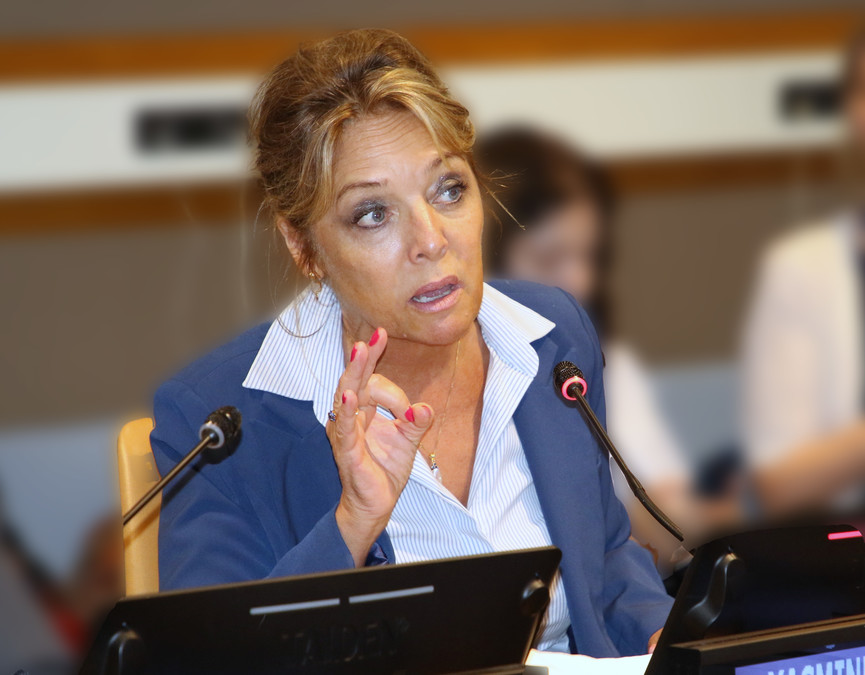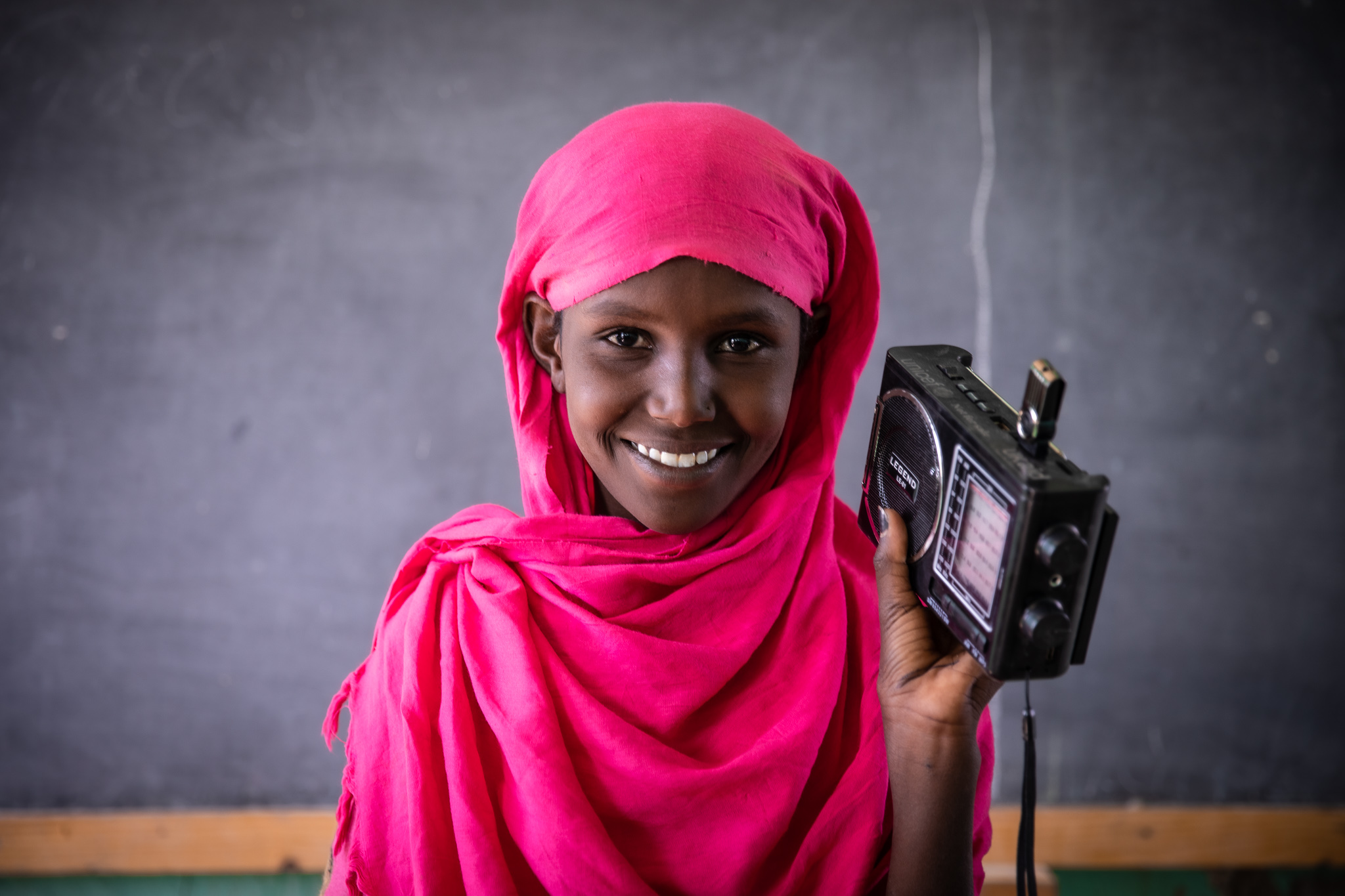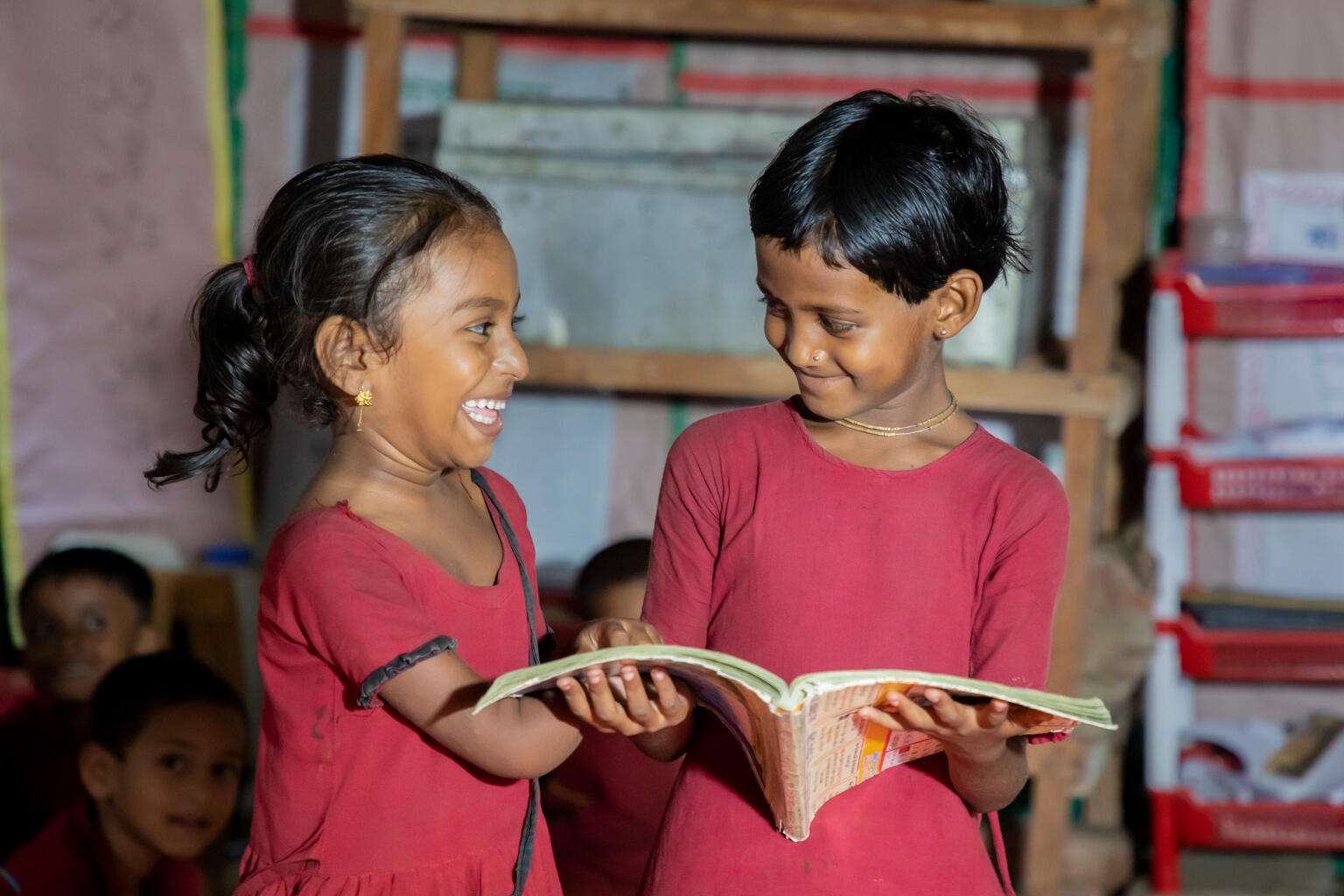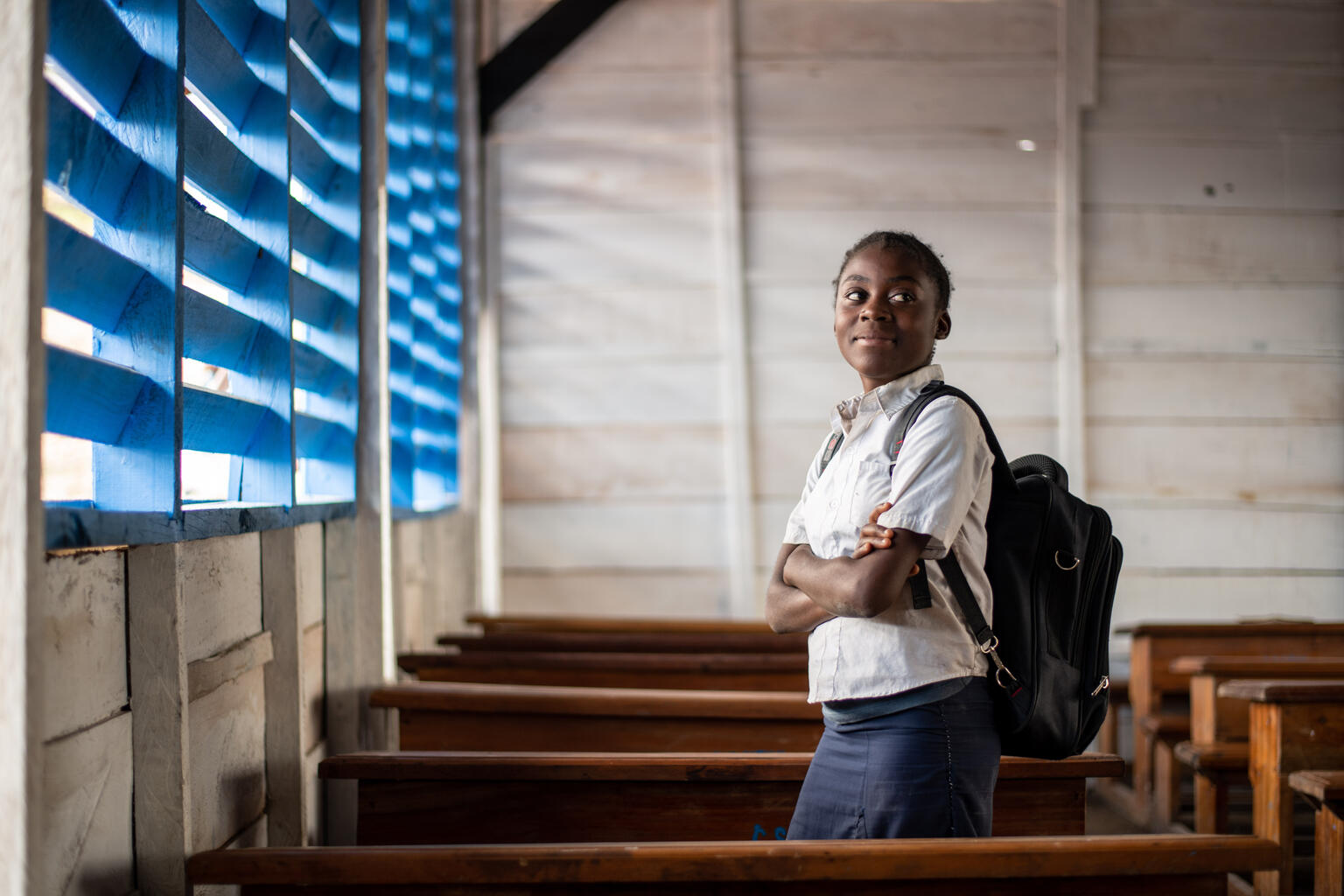ECW Director Yasmine Sherif Commemorates UN Day
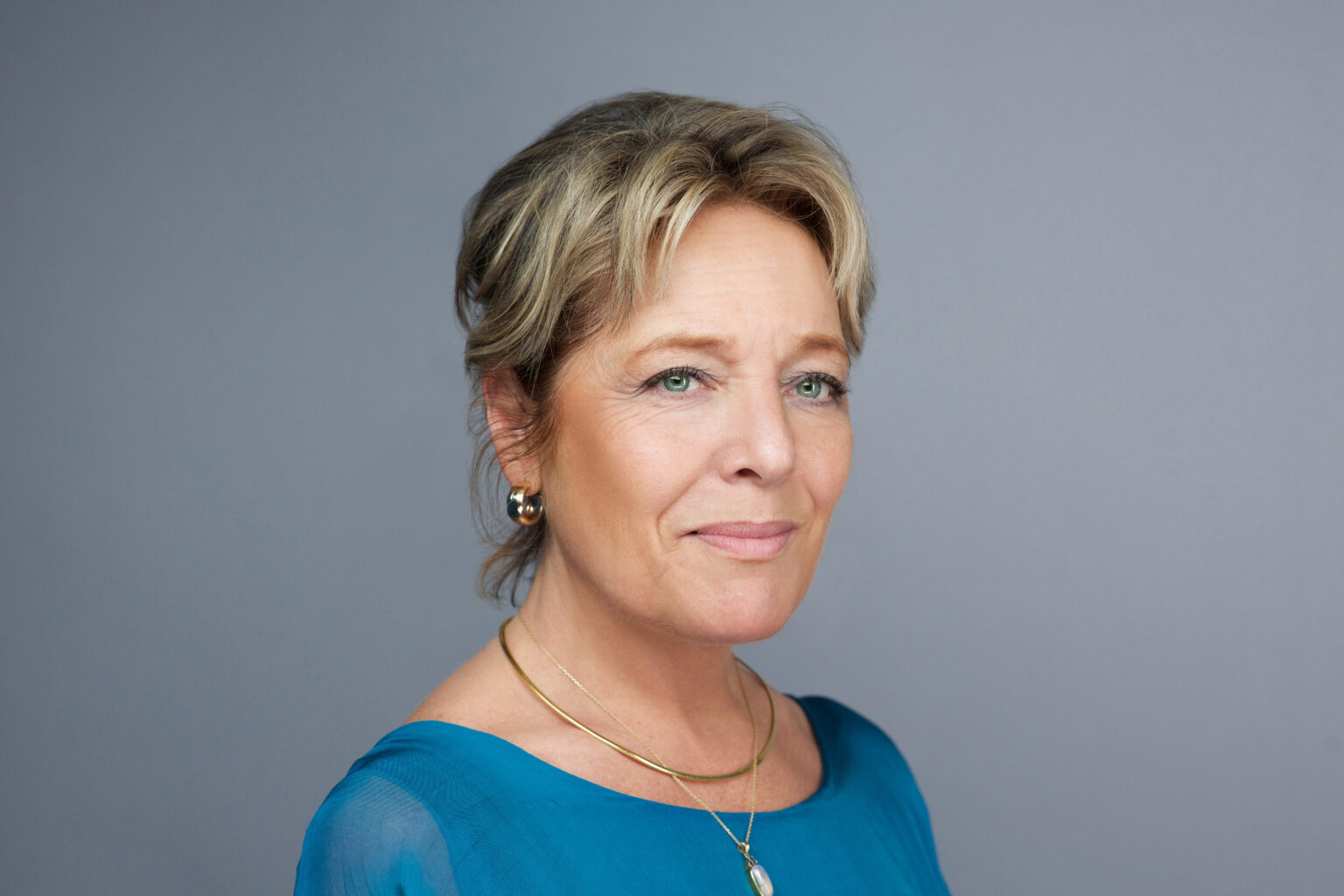
As prepared for delivery.
In 1945, 76 years ago, in the aftermath of World War II and the Holocaust, with fresh and raw wounds still open the founders of the United Nations brought purpose and hope to the world.
One delegate who was present in San Francisco remembered: “We had all these delegates who had just left war-devastated European countries, people who had been living for years without lights, without food, some of them had come from prison camps, concentration camps and labor camps.”
The whole world had been at war. Somewhere between 50 million and 85 million human beings had perished. Entire cities laid in ruin. The United Nations rose from the ashes of destruction and created a magnificent vision for humankind.
Or like the Lebanese poet, Khalil Gibran, once wrote: “Out of suffering have emerged the strongest souls, the most massive characters are seared with scars.” Such were the personalities that created the United Nations.
The United Nations Charter of 1945 enshrines an ethical philosophy and sense for justice that epitomized the spirit of the founders of the world body.
“To save succeeding generations from the scourge of war, which twice in our lifetime has brought untold sorrow to humankind, and to reaffirm faith in the fundamental human rights, in the dignity and worth of the human person.”
In 1948, Eleanor Roosevelt and the French jurist, Rene Cassin, became the driving forces for the creation of the United Nations Universal Declaration of Human Rights, which was adopted by the General Assembly in 1948.
With the UN Charter, the Universal Declaration of Human Rights and successive conventions, which comprise international law, one can safely say that the United Nations was not established to find consensus around the lowest common denominator. It was created to inspire and mold consensus around the highest of human values.
Indeed, in a world of so much suffering, one is bound to ask whether there is anything that connects us in a more worthy cause than the United Nations.
Working in and around the United Nations for the past 31 years, I have seen the Organization have impact on people’s lives. I refuse to say that the United Nations has failed. Rather I say, it has succeeded in much, and is still working on achieving its potential.
Since 1989, my work has transported me to the warzones and crisis environments of those living on the edge of survival in Afghanistan, the Balkans and Darfur. It has brought me face to face with the children in Gaza and the West Bank, the orphans in the Democratic Republic of the Congo, the refugees in Colombia and Chad, the political prisoners in Cambodia, families enduring daily violence in Guatemala, and communities struggling with chronic crisis in South Sudan.
My work has also taken me behind the doors into the structures and processes established to prevent and alleviate human suffering, into the political chambers of the United Nations: the UN Security Council and the UN General Assembly.
The United Nations is a vitally important global organization with a noble mission that represents our shared weaknesses and strengths. It brings together the entire world and reflects the larger challenges and opportunities for humanity. It reflects the dynamics that we all have in common somehow: the yearning for moral leadership, the desire for justice and freedom, and the deep longing for a more enlightened world.
It requires from all of us to believe in this purpose and vision. We are all in this together. And it depends on us. You and me.
Dag Hammarskjold, the late UN Secretary General, once said: “When people, just people, stop thinking of the United Nations as a weird Picasso abstraction and see it as a drawing they made themselves.”
Looking at the world today, from Afghanistan to Syria, from Yemen to the Sahel, we know that our universal values are at stake. And when these are at stake something far greater and vastly more profound is required from us.
We need to ask ourselves what we can do for the United Nations because we are all the United Nations, or as the Charter opens, We the Peoples.
It is about leadership and how we relate to power. About values and justice. Courage and conviction. How we define intelligence and the importance of also having emotional intelligence: to feel empathy. To be able to generate hope and belief. To inspire freedom and creativity. And to remake ourselves. As Gandhi said: “If you want to change the world, start by changing yourself.”
It is possible in the United Nations.
Let me share the story of Education Cannot Wait. It is a global UN fund mandated to mobilize financial resources and empower UN agencies, civil society and communities in countries of wars and hosts of refugees, to deliver quality education to 128 million children and adolescents. For without education, how can any human right, any sustainable development goal be achieved. If the young people of a nation cannot read or write, if girls – 50% of the population – are left behind, how can we end extreme poverty, achieve gender equality or democratic governance, the rule of law, peace and stability.
Education sits at the heart of all human rights and sustainable development goals.
We are small global fund of nearly 30 staff. We apply the principles I just mentioned. We reduce redundant bureaucracy and focus on accountability to those we serve. We are disruptive, creative and bold.
In four years, we have mobilized a total of $1.8 billion dollars and invested in quality education in 38 crisis/conflict/refugee hosted countries. During Covid-19, we reached nearly 30 million children and adolescents and we have delivered a whole of child approach and real quality education to some 5 million children in the toughest parts of the world, the darkest corners on earth.
These are children and young people who have lost everything and have only one hope left: a quality education that will help them arise out of their suffering, out of their dispossession, their traumas and losses, and start anew, make their dreams come true.
If we can support them, we can change the world, and empower the young generation with hope. All they need are the tools. This is what the United Nations does. It brings hope and makes it a reality. Is it perfect? No. Is it making difference? Yes.
The United Nations is our only multilateral organization with a spirit of principles of justice, equality and peace. It is sprung from utter inhumanity and it represents all of humanity. It replaces national interests with human interests. It turns away from selfishness towards otherness. It may not be perfect, but it has an enormous potential. For every child who goes to school, for every refugee who returns home, for every food delivery that is made, for every vaccination it does, for every human life it saves, it makes the world a better place.
What we can do is to support it to achieve its potential.
Today, we commemorate the UN Day. We remember all our colleagues who perished in the line of duty and all the people they sought to serve. We commemorate what it has achieved and the vision upon which it was built. We keep that fire ablaze. We make it happen.
Your work is more important than ever. Keep going. Keep believing in the United Nations, keep the light ablaze. Or as the saint Catherine of Sena said: “If you are what we should be, you would set the whole world on fire.” It is a fire that that does not burn, but brings warmth to millions out there who need you and the United Nations.
Thank you.

